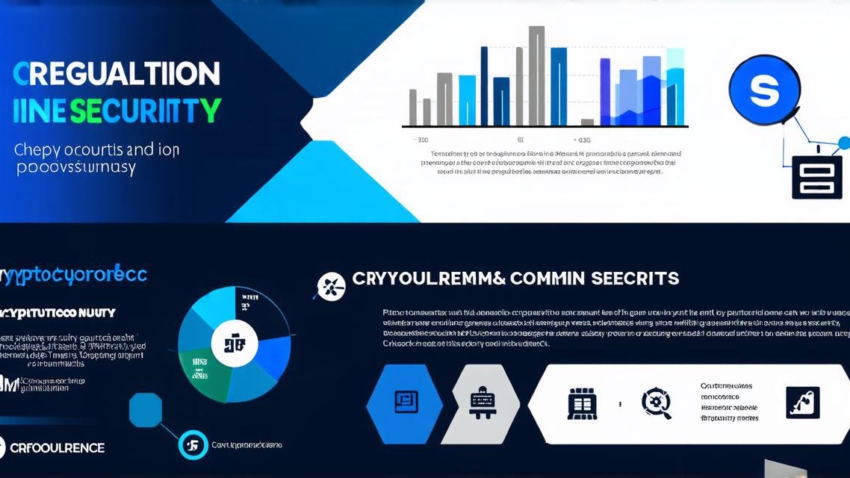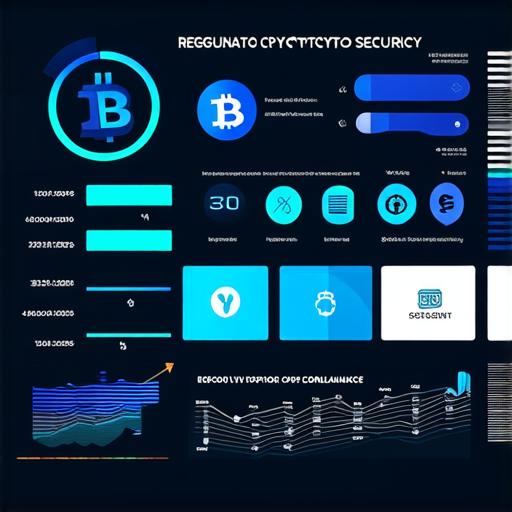
Importance of Regulating Cryptocurrency for Security and Compliance
<h2>Introduction</h2>
Cryptocurrency has been gaining popularity among gamers and crypto games developers, providing an alternative to traditional financial systems. It offers a secure and decentralized way to conduct transactions without the need for intermediaries, making it an attractive option for the gaming industry. However, as with any new technology, there are concerns about its security and compliance. In this article, we will explore why regulating cryptocurrency is crucial for both security and compliance in the gaming industry.
<h2>Understanding Cryptocurrency in Gaming</h2>
Cryptocurrency is a digital or virtual currency that uses cryptography for security. It operates on a decentralized network called blockchain, which records transactions and ensures they are secure and transparent. In the gaming industry, cryptocurrency can be used to purchase in-game assets, make payments to developers, and facilitate cross-border transactions.
Cryptocurrency offers several advantages over traditional financial systems for the gaming industry. It provides a fast and efficient way to conduct transactions without the need for intermediaries, reducing transaction fees and processing times. Cryptocurrency can also offer greater privacy and security for gamers and developers, as transactions are recorded on a public ledger and cannot be tampered with.
However, there are also risks associated with cryptocurrency in the gaming industry. For example, if a hacker gains access to a user's private key, they can steal their cryptocurrency. There is also the risk of fraud and scams, as some developers may use cryptocurrency to facilitate illegal activities.
<h2>Regulating Cryptocurrency for Security</h2>
To address these risks, it is important to regulate cryptocurrency in the gaming industry. Regulation can help to protect users from fraud and scams, ensure compliance with anti-money laundering (AML) and know-your-customer (KYC) regulations, and prevent the use of cryptocurrency for illegal activities.
One way to regulate cryptocurrency is through licensing and certification programs. These programs require developers and operators of cryptocurrency exchanges and wallets to meet certain standards for security, compliance, and transparency. For example, the Financial Conduct Authority (FCA) in the UK has developed a regulatory sandbox program that allows cryptocurrency companies to test their products and services in a controlled environment before seeking full licensure.
Another way to regulate cryptocurrency is through AML and KYC regulations. These regulations require cryptocurrency exchanges and wallets to verify the identity of users and monitor transactions for suspicious activity. For example, the US Securities and Exchange Commission (SEC) has developed a set of guidelines for cryptocurrency exchanges that require them to implement AML and KYC programs.
<h2>Compliance with Regulations in the Gaming Industry</h2>
Compliance with regulations is crucial for the gaming industry, as it ensures that developers are operating within legal frameworks and protecting their users. Failure to comply with regulations can result in fines, penalties, and reputational damage.
For example, in 2018, the SEC charged several cryptocurrency exchanges with violating securities laws. These charges resulted in millions of dollars in fines and the closure of some exchanges. In addition, the Japanese government has implemented strict regulations on cryptocurrency exchanges, requiring them to obtain licenses and implement AML and KYC programs. This has helped to create a more stable and secure environment for cryptocurrency trading in Japan.
<h2>Case Studies: Regulating Cryptocurrency in Gaming</h2>
There are several examples of how regulating cryptocurrency can benefit the gaming industry. One such example is the use of cryptocurrency by game developers to fund their projects through initial coin offerings (ICOs). ICOs allow developers to raise funds from investors by issuing their own cryptocurrency in exchange for tokens, which can be used to purchase in-game assets or access exclusive content.
However, there have been several cases of fraud and scams associated with ICOs. For example, in 2018, the SEC charged several individuals with running a multi-million dollar initial coin offering (ICO) scam, in which they raised funds from thousands of investors by promising to develop a blockchain game that would revolutionize the gaming industry. The scammers used social media and other marketing tactics to lure investors into their scheme, but ultimately disappeared with the funds.
By regulating ICOs and cryptocurrency exchanges, it is possible to prevent such scams and ensure that developers are operating within legal frameworks. For example, in 2019, the SEC approved the first-ever ICO registration statement for a security token offering, providing guidance on how developers can raise funds from investors while complying with securities laws.
Another example of the benefits of regulating cryptocurrency is the use of cryptocurrency by gamers to purchase in-game assets. Cryptocurrency offers several advantages over traditional payment methods, such as faster and cheaper transactions, and greater privacy and security. However, there are also risks associated with using cryptocurrency for in-game purchases, such as price volatility and the risk of fraud.
By regulating cryptocurrency exchanges and wallets, it is possible to ensure that gamers have access to secure and reliable platforms for purchasing in-game assets. For example, in 2019, the SEC approved a cryptocurrency trading platform that allows users to purchase in-game assets using cryptocurrency, providing greater convenience and security for gamers.
<h2>Comparing Regulation with Non-Regulation in Cryptocurrency</h2>
The lack of regulation in some countries has resulted in a Wild West environment for cryptocurrency trading, with few protections for users and little oversight of the industry. In contrast, countries that have implemented strong regulations on cryptocurrency exchanges and wallets






